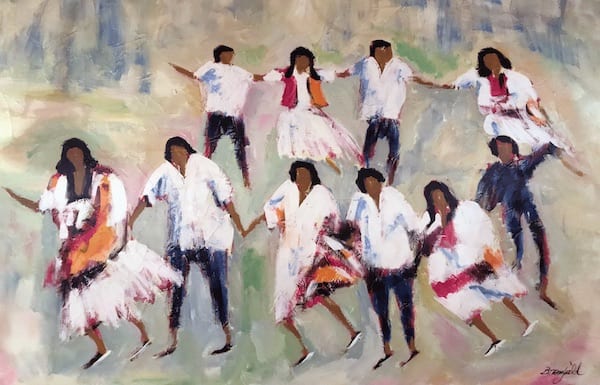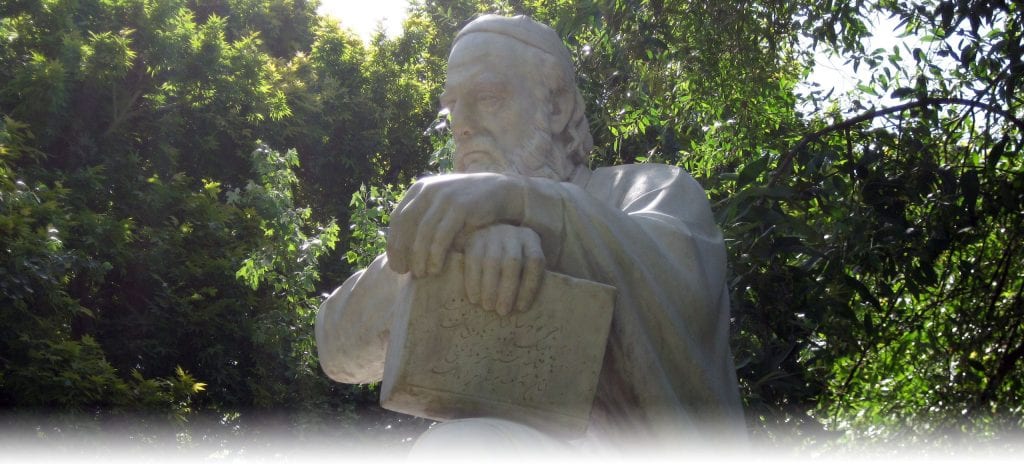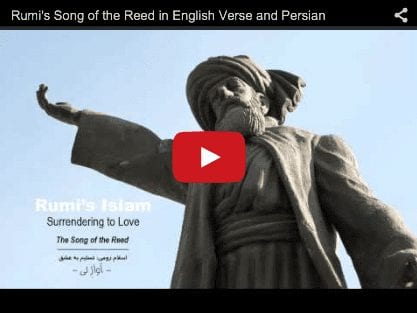
One crowd are searching in religion for a way.
One crowd pursue the way of science, so they say.
I’m afraid one morning a voice will cry out loud:
“The way is neither this, nor that, O gone astray!”
— Omar Khayyam, circa 11th century A.D. (Tamdgidi Translation)
 About OKCIR
About OKCIR
OKCIR: Omar Khayyam Center for Integrative Research in Utopia, Mysticism, and Science (Utopystics) (est. 2002) is an independent research and publishing initiative, dedicated to exploring, in a simultaneously world-historical and self-reflective framework, the human search for a just global society.
Since the world’s utopian, mystical, and scientific movements have been the primary sources of inspiration, knowledge, and/or practice in this field, OKCIR aims to critically reexamine the shortcomings and contributions of these world-historical traditions—seeking to clearly understand why they have failed to bring about the good society, and what each can integratively contribute toward realizing that end.
OKCIR posits that human failures at building a de-alienated global society stem from a spatiotemporal distanciation between the “self” and the “social” foci of efforts at world-historical change in favor of the good society.
This distanciation, deepened through the disintegrating clashes of settled vs. nomadic life-styles during long eras of political, cultural, and economic imperiality ever since the fall of ancient civilizations, has itself been a result of the polarization of ideologies of change into religious and scientific modalities rooted in a common, philosophically perpetuated, idealist vs. materialist dualism.
The combined perpetuation of this dualism in methods, theories, and praxes of change has become manifested in the world-historical fragmentation of the creative humanist paradigm into its predominantly Western utopian and Eastern mystical variants, both eschewed by a globally hegemonic scientific movement.
OKCIR posits that a fundamental explanation for the above is to be sought in the problem of habituation, i.e., the human propensity to become subconsciously attached to sensations, ideas, feelings, things, relations, and processes. It is from this that the dualisms of mind/matter, self/society, and theory/practice—still fragmenting the methods, theories, and praxes of change—fundamentally emanate.
The diverse projections of human creative powers onto objective laws of motion of nature or history, supernatural agencies, or a wise few, represent the degree to which the very agencies of human liberation have themselves grown alienated from one another.
The failed conscious and intentional shocks of the two major humanist renaissances of the 6th-4th centuries B.C. and of the 13th-15th centuries A.D. in bringing about a lasting synthesis of the three polarized and failing fragments of the humanist endeavor, have given rise in the modern period to the “antisystemic” mode of seeking social change which by its very nature of spatiotemporally distanciating the actual means from the promised ends of change has also proven to be an exercise in failure.
OKCIR posits that the way out of this world-historical impasse is that of inventing a new humanist renaissance involving a far-reaching self-critical dialogue across the utopian, mystical, and scientific traditions.
The need for OKCIR as an alternative spacetime for our alchemical journey arises from the limits of hitherto invented structures of knowledge—East and West. OKCIR provides an integrative spacetime for knowledge production as an alternative to the fragmented and disciplined landscapes of philosophy, religion, and science.
OKCIR is an utopystic university, a virtual research center existing simultaneously in personal and world-historical spacetimes—a makeshift “campus,” personal and global. It is built on the premise that the search for alternative human realities cannot advance without alternative research and educational landscapes.
The ends and the means of the search, in other words, must coincide. Utopystics cannot advance without utopystic universities.
OKCIR is utopystic in the sense that it continually seeks new personal and world-historical realities that did not previously exist—thus it must by nature be self-critical and self-transcending against its own habituating inertia.
OKCIR is a movement in the arts—more specifically, a movement in architecture: the spatiotemporal art of becoming human. Temporally, it is not projected onto a distant future or past, but is undertaken in the everyday life of the present here-and-now.
Spatially, it is situated not in retreat from but in the midst of the mainstream culture. It is concerned with the spatiotemporal dialectics of world-historical self-knowledge and change.
Humanist research, in OKCIR’s view, must be treated as a creative work and conducted in a unitary and transdisciplinary way. Its publications must therefore be also treated as any creative work of art is treated.
It would be absurd and nonsensical, in fact insulting and self-defeating to the essentially creative human nature, to expect from any artist, say a painter or a musician, to seek permission or consent in advance from others to draw their paintings or to compose their music and then make them publicly available. Likewise, it should be regarded as nonsensical and absurd, in fact insulting and self-defeating to the essentially creative human nature, to expect that creative researchers subject their works to anyone’s permission or judgment in advance during their conduct and before their public release.
Therefore, their expected (and scientifically also necessary, when relevant) peer and wider reviewing by a global audience (not just by a pre-selected or self-appointed few) must be regarded as a post-publication, not a pre-publication, event.
Pre-publication peer reviewing is an artifact of Westernized imperial university system. It is so hypnotically induced in academia today that its inhabitants take it for granted as if it is a law onto itself, as if it is how things have been practiced throughout history. It is a colonial practice done in the name of science, one that enables self-/censorships of alternative perspectives that challenge and interrogate the basic structures and assumptions of Western culture and science.
Many research projects are perhaps not even launched in anxious anticipation of such filtering to be done amid a hierarchical system of self-serving rankings that dominate academic departments and colleges. Lives are lived without young or not-so-young scholars producing their best works, because their intellection is pre-engineered in a looking glass-self imagination of how others may treat and judge their work.
It thus serves to marginalize, exclude, ostracize, and stigmatize alternative and decolonizing research practices of even already credentialed and licensed scholars who have been trained in their fields, having already gone through a rigorous education and training process.
Modern practices of university research are therefore in essence panoptic mechanisms for disciplining and policing innovative and creatively spirited faculty and students alike. They entangle them in intricately and preemptively devised repetitive and hypnotic academic structures, procedures, and tasks that perpetuate their pre-publication self-/censorship in the name of science and in the interest of preserving the knowledge status quo.
Scholars who are hired are often subjected to such disproportionate service and teaching duties to recycle and maintain existing knowledge that they end up having no time left to do their primary duty of engaging in critical new research to question outdated knowledge.
Tenure traps, impossibly “blinded review” fallacies, and laughable “self-publishing” labelled stigmas and scarecrows are employed as structural and subliminal panoptic strategies to discourage, exclude, and incarcerate creative works by young and not-so-young scholars worldwide, so as to serve (or to exclude their creative energies pitifully and despairingly from) a Westernized university world-system whose essential function is to maintain a neocolonial, not an egalitarian and liberating, world order.
If such absurd pre-publication peer review procedures were consistently applied retroactively in history, all the so-called classics of human heritage down to the status-quo-defying innovative modern discoveries would have had to be regarded as unteachable or unpublishable today.
This is because none of their creators appealed in advance to a so-called expert authority or traditional publisher for any permission to follow their creative impulses and produce new philosophical, religious, and/or scientific works. It suffices here to recall the following: “(Mr. Rosen and I) sent our publication to you without the authorization that you may show it to other specialists before it is printed. I do not see any reason to follow your anonymous reviewer’s recommendations (which incidentally are erroneous). In view of the foregoing, I will consider having the work published elsewhere” (Albert Einstein, as quoted in Calaprice 2011:388-389).1For more discussion of this topic, see Tamdgidi, M. H. 2005/6. “Editor’s Note: Peer Reviewing the Peer Review Process,” Human Architecture: Journal of the Sociology of Self-Knowledge. v. IV, ns. 1&2 (Fall/Spring), vii-xv; also see the editorial note and the articles “Science and Its Malfunctions” by Klaus Fischer (Universität Trier, Germany), and “Scientific Peer Review: An Analysis of the Peer Review Process from the Perspective of Sociology of Science Theories” by Lutz Bornmann (Swiss Federal Institute of Technology Zurich, Switzerland) in Human Architecture: Journal of the Sociology of Self-Knowledge, vol., VI, issue 2, 2008, titled “Sociological Imaginations from the Classroom Plus A Symposium on the Sociology of Science Perspectives on the Malfunctions of Science and Peer Reviewing.”
OKCIR aims to develop new conceptual (methodological, theoretical, historical), practical, pedagogical, inspirational and disseminative structures of knowledge whereby the individual can radically understand and determine how world-history and her/his selves constitute one another.
The center promotes creative exercises in liberating sociology and alternative pluriversities of knowledge production and publication in the global cyberspace. As a virtual research center, its publications are available online in its free-access digital library and in other academic database member-stacks, and for purchase online via the Okcir Store and other online distributors. Selected publications are also available in print for online purchase by libraries, institutions, and interested print readers.
OKCIR pursues innovative editorial, digital and print publishing practices reflecting its substantive goals, and is the publisher of Human Architecture: Journal of the Sociology of Self-Knowledge (est. 2002) which explores issues pertaining to the center’s interests.
OKCIR’s goals are:
- To critically engage with and evaluate classical and contemporary social theories and methods in a transdisciplinary and comparative transcultural framework in order to develop new integrative theoretical structures and practices;
- To foster individual and collective self-reflexivity in exploring social theories and methodsin global and world-historical contexts to aid people effectively address social problems;
- To foster an interactive and dialogical learning experience and research in theory and methods within and across community, faculty, and students divides off and on campus;
- To foster exchange of ideas open to constructive and integrative exploration of diverse and conflicting viewpoints, modes of thinking, and world-views;
- To foster theoretical education and research within a praxis-oriented and applied sociological framework capable of addressing concrete issues arising from intrapersonal, interpersonal, and global contexts;
- To foster methodological, theoretical, and world-historical research and education as practices of freedom in favor of transformative and emancipatory personal and global experience.
Endnotes
- 1For more discussion of this topic, see Tamdgidi, M. H. 2005/6. “Editor’s Note: Peer Reviewing the Peer Review Process,” Human Architecture: Journal of the Sociology of Self-Knowledge. v. IV, ns. 1&2 (Fall/Spring), vii-xv; also see the editorial note and the articles “Science and Its Malfunctions” by Klaus Fischer (Universität Trier, Germany), and “Scientific Peer Review: An Analysis of the Peer Review Process from the Perspective of Sociology of Science Theories” by Lutz Bornmann (Swiss Federal Institute of Technology Zurich, Switzerland) in Human Architecture: Journal of the Sociology of Self-Knowledge, vol., VI, issue 2, 2008, titled “Sociological Imaginations from the Classroom Plus A Symposium on the Sociology of Science Perspectives on the Malfunctions of Science and Peer Reviewing.”

